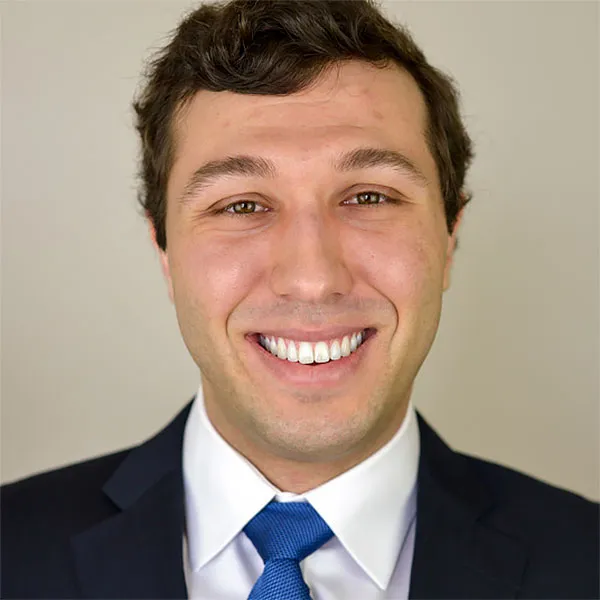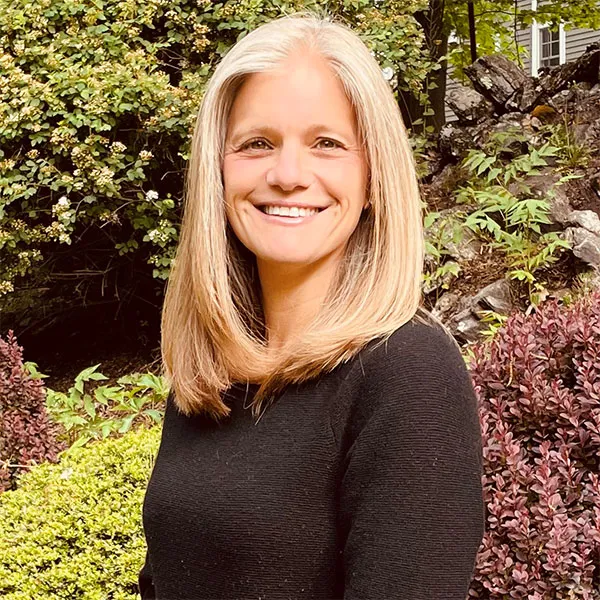Current/Recent Students

Pablo Cuartas
Currently: Will graduate Einstein with an MD and MS in Bioethics in 2022.
Graduated with a BS from Washington University St Louis.
Why were you interested in getting a graduate degree in Bioethics?
I had been interested in philosophy and ethics since high school and studied philosophy in college. In medical school, I wanted a way to reintegrate that part of my education into my career. The graduate degree in Bioethics offered exactly that opportunity. It was a straightforward application process, and the courses offered aligned with my own interests in normative decision making in medicine.
Why did you choose the Einstein Cardozo Master of Science in Bioethics?
The Einstein Cardozo program offers a variety of courses in a centrally located institution. I had the option to not only take classes that were directly about bioethics, but also law classes thanks to the partnership with Cardozo. Additionally, the faculty were a big draw. The professors came from a range of professional backgrounds and experts in their fields, both from business and academic fields.
What was your favorite aspect of the Bioethics program?
My favorite part of the program was the class structure. There was independent work outside of class hours, of course, and that meant that when we met as a class, it was largely discussion-based. There were not a lot of didactics. Instead, the classes flowed well because it was largely the students who would ask each other questions, engage with the material, and be gently guided along to the teaching principles.
What was your experience being a graduate student in the program?
I loved being a graduate student in the program. As a medical student, I approached the ethics issues from a medical perspective at first. However, there were also attorneys, internists, surgeons, social workers, writers, nurses, and other students. Each person approached topics from their own professional background, but also with their own personal experiences in mind. I fostered the ability to see an issue from a different angle, and ultimately created more creative solutions.
How did you spend your time outside of the classroom?
In the year I completed the master, I also worked full-time as the Bioethics Consultation Fellow at the Montefiore-Einstein Center for Bioethics. I also continued my medical school research, which involved the ethics of rationing protocols for mechanical ventilators in times of scarcity.
In what ways do you hope the Einstein Cardozo MS in Bioethics will help you in your future work?
I plan to train as a general surgeon after medical school. My hope is that my time studying and working in bioethics will pay off for my patients and colleagues. In each of my clinical decisions, I want to identify the medically optimal route and to analyze the available options with an eye towards what we ought to do. I hope to also stay involved in clinical ethics decision making at my future institutions, both to provide whatever utility I can, and to continue learning about this exciting and evolving field.
Would you recommend the Einstein Cardozo Master of Science in Bioethics to others?
I would, without reservation, recommend this program to anyone with even a cursory interest in bioethics. If you find the Trolley Problem is interesting, this program is for you.
Why were you interested in getting a graduate degree in Bioethics?
I had been interested in philosophy and ethics since high school and studied philosophy in college. In medical school, I wanted a way to reintegrate that part of my education into my career. The graduate degree in Bioethics offered exactly that opportunity. It was a straightforward application process, and the courses offered aligned with my own interests in normative decision making in medicine.
Why did you choose the Einstein Cardozo Master of Science in Bioethics?
The Einstein Cardozo program offers a variety of courses in a centrally located institution. I had the option to not only take classes that were directly about bioethics, but also law classes thanks to the partnership with Cardozo. Additionally, the faculty were a big draw. The professors came from a range of professional backgrounds and experts in their fields, both from business and academic fields.
What was your favorite aspect of the Bioethics program?
My favorite part of the program was the class structure. There was independent work outside of class hours, of course, and that meant that when we met as a class, it was largely discussion-based. There were not a lot of didactics. Instead, the classes flowed well because it was largely the students who would ask each other questions, engage with the material, and be gently guided along to the teaching principles.
What was your experience being a graduate student in the program?
I loved being a graduate student in the program. As a medical student, I approached the ethics issues from a medical perspective at first. However, there were also attorneys, internists, surgeons, social workers, writers, nurses, and other students. Each person approached topics from their own professional background, but also with their own personal experiences in mind. I fostered the ability to see an issue from a different angle, and ultimately created more creative solutions.
How did you spend your time outside of the classroom?
In the year I completed the master, I also worked full-time as the Bioethics Consultation Fellow at the Montefiore-Einstein Center for Bioethics. I also continued my medical school research, which involved the ethics of rationing protocols for mechanical ventilators in times of scarcity.
In what ways do you hope the Einstein Cardozo MS in Bioethics will help you in your future work?
I plan to train as a general surgeon after medical school. My hope is that my time studying and working in bioethics will pay off for my patients and colleagues. In each of my clinical decisions, I want to identify the medically optimal route and to analyze the available options with an eye towards what we ought to do. I hope to also stay involved in clinical ethics decision making at my future institutions, both to provide whatever utility I can, and to continue learning about this exciting and evolving field.
Would you recommend the Einstein Cardozo Master of Science in Bioethics to others?
I would, without reservation, recommend this program to anyone with even a cursory interest in bioethics. If you find the Trolley Problem is interesting, this program is for you.

Jessica A. Rosh
Currently: Pursuing MS in Bioethics
Graduated from Boston University, BS
Graduated from New York Law School, JD
Why were you interested in getting a graduate degree in Bioethics?
I went to law school driven by my desire to make a meaningful difference in the world. As an attorney, I noticed something I never anticipated. The law, a critical, valued and necessary part of society was equipped to create guidelines on how to live based on what we are permitted to do and how we are entitled to act. However, when working to resolve issues, many times it seemed that there was a gap between what we are permitted to do and what we ought to do. Bioethics fills that gap - even if it requires acting in a way with responsibilities beyond what the law may find sufficient. The blend of my legal and bioethics experience and education provides me with the foundation to consider not just our fundamental legal rights but our fundamental ethical obligations to one another as well.
Why did you choose the Einstein Cardozo Master of Science in Bioethics?
I chose the Einstein Cardozo Master of Science in Bioethics because it is a broad-based program offering the opportunity to learn from highly respected professors with various professional backgrounds: law, philosophy, religion, medicine and medical humanities. Bioethics is a multi-disciplinary field and learning from professors with the depth and breadth of experience and perspective they bring, helps me to broadly frame bioethics issues.
What was your favorite aspect of the Bioethics program?
My classmates and colleagues are one of my favorite aspects of the Master of Science in Bioethics program. Exploring bioethics issues with experienced physicians, lawyers, mental health professionals, and scholars from various disciplines, and at differing stages of their careers, makes for rich and textured classroom discussion. Bioethics issues are often multi-faceted and complex and working through them with other students from such various academic backgrounds and training brings to light perspectives which I may not have previously considered. The course material is robust enabling us to consider a wide variety of topics in bioethics.
How did you spend your time outside of the classroom?
Being a graduate student in the program was helpful in my work outside of the classroom. The class discussions, reading material, videos and podcasts assigned as coursework broadened my perspective and benefited me in my work as both an Educational Consultant for the Maimonides Institute for Medicine, Ethics and the Holocaust and as medical and interprofessional ethics faculty at another university teaching medical and dental students in their first and second years of study.
Would you recommend the Einstein Cardozo Master of Science in Bioethics to other undergraduate students?
I would absolutely recommend this program to others. Those who are fortunate to pursue an Einstein Cardozo Master of Science in Bioethics will have the opportunity to take classes with knowledgeable and experienced faculty, learn with bright and engaged students and consider wide-ranging bioethics issues from various perspectives. The program provides the opportunity to engage in both traditional semester-long coursework as well as intensives such as clinical consultation skills and mediation skills training. Connections I have made with faculty and classmates at Einstein Cardozo will last far beyond my time as a student in the Master of Bioethics program – both professors and classmates have become colleagues and friends.
